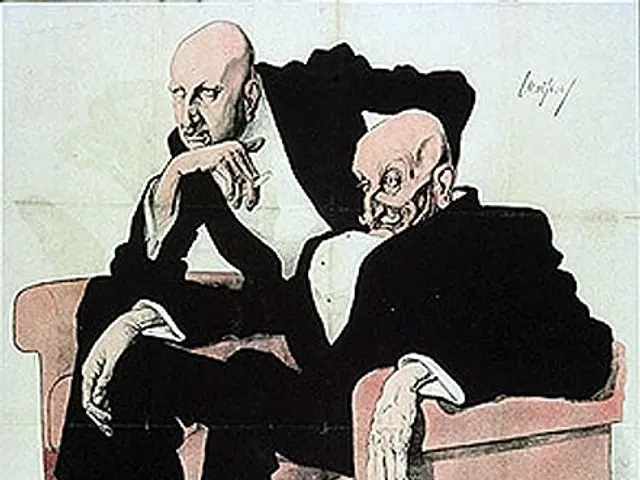Sounding the Alarm: Wulff Calls for AfD Rethink Amid Ban Debate
Vice-President Wulff Advocates for Investigation into Potential Prohibition of AfD Party - Previous German President Wulff advocates for re-evaluation of AfD's prohibition
In the wake of the AfD (Alternative for Germany) being classified as securely right-wing extremist, former Federal President Christian Wulff urges for a comprehensive review of the proposed ban process. This assessment is based on the report from the Federal Office for the Protection of the Constitution, which suggests that the AfD is actively seeking to dismantle the democratic and liberal foundation. Wulff disclosed his plans to delve into the report himself at the Ludwig-Erhard summit in Gmund am Tegernsee.
Urgent Need for Expert Opinions and Swift Procedure
In order to expedite the ban process, additional legal opinions are vital to ensure a prompt initiation. This would allow for the procedure to be completed within a four-year timeframe. Wulff asserted, "Then it must not fail, and in the end, the AfD will be running around saying, look at us now, we've passed the constitutional test, we have a seal."
Parallels to the Historic Misstep with the NSDAP
Wulff drew parallels between the current debate over the AfD and the handling of the NSDAP (Nationalsozialistische Deutsche Arbeiterpartei, or Nazi Party) in the Weimar Republic. "Today, we must reproach ourselves that clever officials in 1930 demanded the ban of the NSDAP," explained Wulff. He emphasized that this missed opportunity to ban the Nazi party in 1930, followed by its brief ban and swift re-approval, could have prevented the Second World War and potentially saved six million Jews.
Embracing Democracy
Wulff voiced his support for a possible ban application, stating, "We must examine this very carefully. If everything goes positively, I am in favor of a ban application, a ban, and a fight against the AfD on land, on water, and in the air." He stressed the importance of Germans being more passionate in preserving their democratic values, as the failure to do so in 1933 led to Germany's democratic collapse.
Although the AfD has been categorized as right-wing extremist, the political implications of a ban remain contentious.
- Christian Wulff
- AfD
- Classification
- Ludwig-Erhard Summit
- Gmund am Tegernsee
- NSDAP
- Democracy
- Ban debate
- Constitutional Protection
- CDU
Historical Context: NSDAP
- In 1930, the failure to ban the Nazi party resulted in a missed opportunity to prevent its rise, detrimental consequences, and the start of World War II. The party's aggressive tactics and exploitation of societal tensions contributed to its growth.
Current Debate: AfD Ban
- The AfD is a right-wing populist party in Germany that has been criticized for its anti-immigration and anti-Islam stance. The ongoing debate over its potential ban centers around the party's commitment to upholding democratic values.
Comparison and Significance
- The comparison between the current ban debate and the missed opportunity to ban the Nazi party in 1930 demonstrates the need for a more proactive approach to addressing extremist ideologies in a democratic society.
- The evolution of Germany's legal framework and democratic institutions since the Weimar Republic provides a more robust structure for addressing extremism than was previously available, minimizing the chance of repeating past mistakes.
In conclusion, the historical context of the missed ban of the NSDAP in 1930 serves as an important lesson for the current debate over the AfD, emphasizing the need for a vigilant approach in safeguarding democracy while respecting democratic freedoms.
- In light of the AfD being classified as a securely right-wing extremist, former Federal President Christian Wulff is advocating for a thorough reconsideration of the ban process.
- Wulff aims to delve further into the report from the Federal Office for the Protection of the Constitution, which suggests that the AfD aims to undermine democratic and liberal foundations, following the Ludwig-Erhard summit in Gmund am Tegernsee.
- Wulff underlines the significance of swiftly gathering additional legal opinions to accelerate the ban process, asserting, "Then it must not fail, and in the end, the AfD will be running around saying, look at us now, we've passed the constitutional test, we have a seal."
- Drawing parallels with the handling of the NSDAP in the Weimar Republic, Wulff highlights the potential consequences of missing opportunities to ban extremist parties, such as the missed opportunity to ban the Nazi party in 1930, which could have prevented World War II and saved six million Jews.






